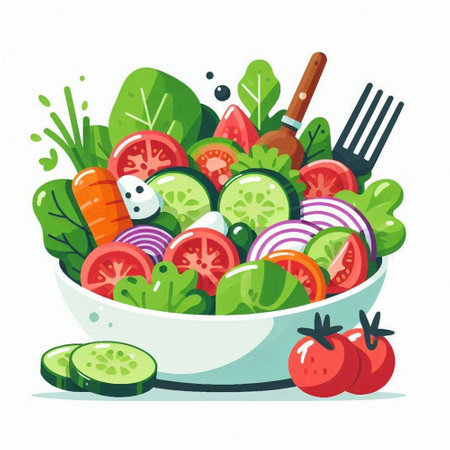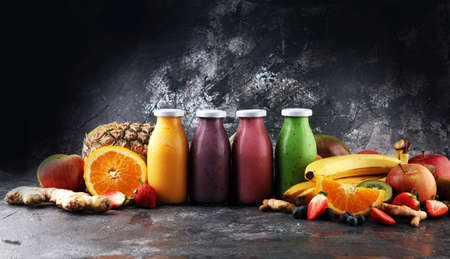Introduction to Juice Cleanses in the UK
If you’ve been keeping an ear to the ground when it comes to wellness trends in the UK, you’ll have noticed that juice cleanses are making quite a splash. But what exactly is a juice cleanse, and why are so many Britons incorporating them into their routines? At its core, a juice cleanse involves consuming only fruit and vegetable juices for a set period—usually anywhere from one to several days—instead of solid food. The idea is to give your digestive system a gentle break while flooding your body with nutrients and antioxidants drawn from nature’s finest produce.
The appeal of juice cleanses among those seeking a more balanced lifestyle lies not just in the potential physical benefits but also in their impact on mental clarity and overall wellbeing. For many in the UK, with busy schedules and often unpredictable weather, a juice cleanse offers a refreshing reset—a chance to step back, recalibrate, and reconnect with healthier habits. Whether you’re looking to kickstart new eating patterns, lighten your daily load, or simply take some time for self-care, understanding the basics of juice cleansing can help you decide if it’s right for you as part of your journey towards greater balance in both body and mind.
2. Understanding the British Approach to Cleansing
Juice cleanses have gradually found their place in the UK’s ever-evolving wellness scene, blending international health trends with a distinctively British twist. While many might picture juice cleanses as a Californian export, Brits are increasingly embracing these resets—albeit in a manner that reflects local values and habits. For starters, sourcing produce locally is a point of pride. Many UK-based juice brands highlight their use of apples from Kent, beetroots from Norfolk, or carrots from the Scottish Highlands. This farm-to-bottle ethos resonates with British consumers who care deeply about supporting local farmers and reducing food miles.
Attitudes toward health trends in Britain tend to be pragmatic rather than faddish. While some may approach juice cleanses with cautious curiosity—perhaps influenced by celebrity culture or social media—others see it as an opportunity for mindful self-care rather than a quick fix. The typical Brit values moderation: you’ll often find advice encouraging participants to listen to their bodies and avoid extremes, keeping things balanced and sustainable.
British Touches on Juice Cleansing |
What Makes It Unique? |
|---|---|
| Local Ingredients | Focus on seasonal fruits and veg like Bramley apples, blackcurrants, and rhubarb |
| Sensible Duration | Most UK plans last 1-3 days, avoiding extreme long-term cleanses |
| Cultural Attitude | Avoids hype; emphasises balance and realistic expectations |
| Community Connection | Many small businesses offer delivery nationwide, supporting local economies |
If you’re considering a juice cleanse in the UK, expect guidance that’s grounded in everyday life—think practical tips for handling a day at the office or navigating your local Sainsbury’s for top-notch ingredients. Above all, the British approach champions taking things at your own pace and making changes that genuinely fit your lifestyle.

3. What to Expect During a Juice Cleanse
Embarking on a juice cleanse in the UK can be both a refreshing and challenging experience, particularly when balancing the bustle of British daily life. In the first day or two, its common to feel a boost of motivation as you swap your usual tea and toast for nutrient-packed juices. However, don’t be surprised if you also experience some physical shifts—mild headaches, fatigue, or even slight irritability are all part of your body adjusting to the change. These sensations tend to pass as your system settles into its new rhythm.
Emotionally, you might notice moments of heightened clarity and focus, but there could also be periods where cravings test your willpower—especially during the traditional afternoon tea break or when the unmistakable aroma of a neighbour’s roast wafts through the window. It’s important to honour these feelings without judgement; many Brits find that sticking to their regular routines, like a brisk walk in the park or catching up with friends over herbal tea, helps maintain balance and morale.
The pace of life here often means squeezing a cleanse around work commitments and family obligations. Preparing juices ahead of time or opting for local delivery services can ease the pressure, letting you focus on tuning in to your body’s needs. Remember, every cleanse is unique—some find renewed energy by day three, while others appreciate gentler benefits like better sleep or clearer skin. By listening to yourself and respecting the ebb and flow of both your emotions and energy levels, you’ll get the most out of this mindful reset amidst the hum of everyday British life.
4. How to Prepare for Your First Cleanse
Embarking on your first juice cleanse in the UK requires a bit of forethought and gentle preparation. Rather than diving in headfirst, it’s wise to gradually transition both your diet and daily routines, ensuring you give your body the best chance to thrive during the cleanse. Here’s how you can set yourself up for success.
Gradually Adjusting Your Diet
A sudden switch to only juices can be a shock to the system, so its best to start easing off processed foods, caffeine, refined sugars, and heavy meals a few days before your cleanse begins. Instead, opt for lighter fare like steamed veg, salads, fresh fruit, and whole grains. This gentle approach helps curb cravings and reduces any side effects as your body transitions.
Sample Pre-Cleanse Dietary Transition
| Days Before Cleanse | Recommended Foods | Foods to Avoid |
|---|---|---|
| 3–4 Days | Fresh fruits, vegetables, porridge oats | Processed snacks, red meat |
| 1–2 Days | Steamed greens, herbal teas | Coffee, dairy products |
| Day Before | Light soups, water, juices | Sugar-laden treats, alcohol |
Shopping for Juices in the UK
Whether you’re opting for a DIY approach or purchasing from a local juice provider, quality is key. Look out for British brands using locally sourced produce – not only does this support homegrown businesses but ensures your juice is as fresh as possible. Many companies also offer delivery services across the UK. If you prefer making your own, stock up at your nearest farmers’ market or grocer for organic options.
Tip: Essential Shopping List for Home-Made Juice Cleanses
- Cucumber, kale, spinach (for greens)
- Apples, pears (for natural sweetness)
- Lemons, ginger (for zing and digestion)
- Bottled spring water or coconut water (for hydration)
- Mason jars or bottles for storage
Arranging Your Schedule for Success
Your first cleanse is a time to be gentle with yourself. Try to avoid scheduling big events or strenuous activities. Instead, block out time for rest – perhaps even book a day off work if possible. Make sure you have easy access to your juices throughout the day and prepare some herbal teas or infused water to keep you hydrated. Keep a journal nearby to note how youre feeling; this mindfulness practice can help you reflect on what works best for you.
5. Tips for a Successful and Enjoyable Cleanse
Embarking on a juice cleanse in the UK can feel both exciting and a little daunting, but with some mindful habits, you can make it a truly rewarding experience. Here are some practical tips to help you get the most out of your cleanse while keeping life balanced and enjoyable.
Stay Mindful and Present
Rather than racing through your day, take the cleanse as an opportunity to slow down. Notice how each juice tastes—perhaps even sit by your window with a view of your garden or local park. Being present helps you listen to your body’s needs and appreciate the process.
Hydration is Key
Alongside your juices, remember to drink plenty of water throughout the day. Herbal teas are also a lovely option, especially with our famously unpredictable British weather. Keeping hydrated supports your body’s natural detox processes and keeps your energy levels steady.
Prioritise Rest
A cleanse is a chance to be gentle with yourself, so don’t overbook your diary. If possible, avoid strenuous workouts or late nights. A brisk walk around your neighbourhood or some light stretching can be perfect. Make sure to get enough sleep so your body has time to rejuvenate.
Be Gentle With Yourself
Cleansing isn’t about perfection—it’s about tuning in to what works for you. If you’re feeling peckish, don’t be hard on yourself; sometimes a few slices of cucumber or an apple can make all the difference. Remember, there’s no ‘right’ way—just what feels best for you in this moment.
Keep It Social (If You Fancy)
If you’re cleansing while friends are out for coffee or the pub, bring along your juice and join in the conversation. The UK is full of supportive communities—online or local—where you can share experiences and tips.
Your Everyday Balance
The key is to weave these habits into your normal routine without stress. Whether you’re working from home in Manchester or cycling through London’s parks, a mindful approach keeps the cleanse enjoyable—and sustainable—even after it ends.
6. Life After the Cleanse: Maintaining Balance
Completing your juice cleanse is a real accomplishment, but true transformation comes from what you do next. As you ease back into everyday eating, it’s essential to listen closely to your body and honour its signals. Start by gently reintroducing solid foods; begin with light options like steamed vegetables, fresh fruit, and whole grains before moving on to heavier fare such as dairy or animal proteins. This gentle approach helps your digestive system adjust and reduces the risk of discomfort.
Supporting Long-Term Wellness
The benefits of a cleanse can last well beyond those first few days if you make mindful choices moving forward. Embrace a balanced diet rich in seasonal British produce—think root veg in winter, berries come summer, and leafy greens throughout spring and autumn. Staying hydrated remains key, so keep sipping water and herbal teas. Prioritise regular movement, whether that’s a brisk walk through your local park or a restorative yoga session at home.
Honouring Your Body’s Natural Rhythm
Remember, wellness is about balance, not perfection. Allow yourself the occasional treat without guilt—perhaps a slice of Victoria sponge at a Sunday gathering or your favourite fish and chips on the seaside. Listen to your hunger cues and respect your natural rhythms: eat when you’re genuinely hungry, rest when you’re tired, and don’t be afraid to say no if your body needs downtime. Reconnect with your sense of self through mindful practices like journaling or meditation.
Your Everyday Routine
As life returns to its normal pace, let the clarity gained from your cleanse guide your daily choices. Prepare meals with intention, savour each bite, and celebrate small wins—whether that’s choosing porridge over pastries for breakfast or making time for an evening stroll. By weaving these habits into your routine, you’ll create a sustainable path towards long-term wellbeing, rooted in both modern nutrition and timeless British traditions.


